Wikimania 2014: Wikipedia belongs in Education
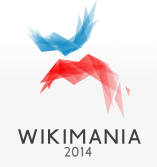 This year’s Wikimania, held at the Barbican in London, had dedicated education tracks and an education pre-conference: it seemed like an important place for the Open Education Working Group to be represented at.
This year’s Wikimania, held at the Barbican in London, had dedicated education tracks and an education pre-conference: it seemed like an important place for the Open Education Working Group to be represented at.
It was my first Wikimania (the 10th in the series) but I was struck by how mature, open and welcoming the community is. This shouldn’t have been a surprise, Jimmy Wales’ vision remains very much at the heart of all Wikimedia (the foundation under which Wikipedia sites) does: “Imagine a world in which every single human being can freely share in the sum of all knowledge“.
There were some amazing sessions and the featured speakers in particular really blew me away. You can watch many of these in online videos. Here are some of the key ideas I took away.
“Wikipedia belongs in Education”
There was considerable focus on the Wikimedia Education Programme which links together schools, colleges and universities, and Wikipedia. The Wiki Education Foundation supports innovative uses of Wikipedia and related projects in communities of teaching, learning, and inquiry in the United States and Canada. The foundation has gone from having relatively few programmes back in 2006 to having over 60 countries with initiatives. It was interesting to hear about the evolution of different education programmes; some started with no money and minimal backing. During the session there was quite a lot of reflection on whether the programme is achieving its goals, and what those goals are, or should be.
In a fringe session we heard about programmes in the US, Brazil, Serbia and Austria from [left to right in the image below] Hubert Heinz (School and University Programme, Austria), Filip Maljković (Wikimedia Serbia Chapter), Oona Castro (Ação Educativa, Brazil) and Jami Mathewson (Wiki Education Foundation, USA).
Some of the key challenges identified at this stage are:
- How do you get everyone to have a participatory role in the education field?
- How do you get academics and educator involved?
- Once you get students using and creating in Wikipedia how do you ensure their retention – that they remain part of the community? [A much banded about statistic at the event was that 9 out of 10 new editors leave within the first week]
- Why should we put money into educating people when they only edit one article?
- Is Wikipedia ‘just an encyclopedia’ or is it a community?
Some of the suggested approaches were to create templates for starting education programme; case studies on how Wikipedia has changed students and educator lives; more tracking of the progress and impact of the education programmes.
A few other projects/initiatives people might be interested in:
- RAVE-O project – pilot project in Ethiopia for 30 children with zero literate parents
- Nell’s Wikipedia – education platform for children in developing world
- Wikiquals – Participatory Learning for Participatory Democracy
- Contentmine – The ContentMine uses machines to liberate 100,000,000 facts from the scientific literature
- Wiki data – Wikidata is a free knowledge base that can be read and edited by humans and machines alike. There was a huge amount on the potential of Wikidata – see a post on the LinkedUp Project for more on data at Wikimania
“Learning black market”
Wikipedia continues its fight to be seen as credible in an education context despite the fact that research has shown Wikipedia to be a hugely useful tool in education and users get higher exam results.
David White provided a wonderfully clear rhetoric on ‘what’s left to teach now Wikipedia has done everyone’s homework’ (his notes). His premise was that we need to think about the difference between education and learning; learning is bigger than education. In recent years informal learning has exploded, the Jisc/OCLC report Visitors and Residents: What Motivates Engagement with the Digital Information Environment? offers some interesting insites here. David explained that there are issues between how education and Wikipedia intersect. For example there is an undercurrent of understanding at universities and schools that when educators say “don’t go to Wikipedia” what they mean is “don’t quote Wikipedia“, it’s almost like a ‘Learning black market’ where people are unable to voice what is really happening. David alluded to the fact that Wikipedia, in a drive to bring together knowledge, has ended up asking fundamental questions about knowledge. Wikipedia is disrupting the nature and currencies of credibility – currencies of credibility. The web is a new (unstable) currency, which changes radically depending on how it is used. However Wikipedia struggles with fitting in because it doesn’t fit web culture or other more traditional cultures. The lazy persons response to Wikipedia is that it is not credible because anyone could write it. Students are after the ‘perfect Google’ where you type in a question and you know top answer is correct. They are being sold an idea of ‘think less – find more’. So it becomes clear that the fundamental problem with both Google and Wikipedia is that they are ‘too easy’, there is a loss of ontology. One could argue that a side effect of finding information is learning. So surely this means that the problem is not Wikipedia but that learning needs to evolve and we need to shift from a pedagogy of answers to a pedagogy of questions (and here I wanted to shout out ‘open learning and teaching practices’). In reality Wikipedia is a gift to education as it encourages people to learn how to think.
“Just in time Education”
Wikihow‘s slogan is “We’re trying to help everyone on the planet learn how to do anything.” If you’ve looked at Wikihow you’ll realise that anything does actually mean that, from tying shoelaces and making chocolate brownies, to building a rocket and learning to be brave. In a talk on the state of Wikihow Jack Herrick, the founder of wikiHow, explained that the idea behind the site is founded on a “traditional information is slow” idea and the fact that rather than look for online couses people search for “how to..” – this is the ‘just in time education’ idea. The site contains a huge amount of resources and is increasing its media with more quizzes, images and use of video. It is pushing into other languages through volunteer and paid efforts
“Open authority”
I really enjoyed the talk from Lori Byrd Phillips of the Children’s Museum of Indianapolis and the GLAM-Wiki US Consortium about ‘open authority’ which provided tips for initiating and sustaining partnership with cultural organisations. Lori explained that museums are not slow to come up ideas but slow to implement. She used a temple metaphor based on the cathedral (top down development) and bazaar (everyone free to adapt- open source) idea originating in Eric S Raymond’s 1999 book (she wasn’t the only person to reflect on this analogy during Wikimania). Applying bazaar idea in museums suggests that museums can be both temples and bazaars, which leads in to this idea of open authority where you have museum expertise and community collaboration. It is a broader paradigm shift that I think applies to many sectors. As Lori explained “Open authority is something we have been doing for years, we’re just putting a name to it, maintaining authority and bring open are not mutually exclusive.” Lori shared a spectrum of open authority / participation which sees contributory -> collaborative – > co-create as a scale. I thought this was a great representation that showed how we may at times feel we are being open an allowing full participation, but we often aren’t. Lori also pointed out some objections to the term crowdsourcing that I wasn’t aware of.
Wikipedia Zero
In the session Kumusha takes wiki we heard from Isla Haddow-Flood, WikiAfrica Project Manager, and Florence Nibart-Devouard, former chair of the Board of Trustees of Wikimedia Foundation, about content from Wiki Africa. There is currently a low amount of information on Africa, often skewed due to system bias. The Wiki Africa team are attempting to correct this by activating communities across Africa and promoting freely licensed material. The group have recently organised a Wikimedia South Africa continental conference called Wiki Indaba, which was attended by representatives from 18 countries. There is also a Wiki loves Africa – photography content, the competition is an annual event and this year the focus is cuisine. The thinking behind this is that there is a lot of landscape and animal images of Africa but relatively little else. Other interesting work includes research into ‘actionable metrics‘ including “what makes a good article about a country?” from Max Klein looking at Uganda and Cote d’Ivoire.
The potential in Africa lies in the mobile phone so it was great to hear about the Wikipedia zero work, which enables users to access Wikipedia on their mobile phone free of data charges. Wikipedia Zero has now been implemented in 29 countries with 34 operators and is available to an estimated 350 million people. There is an amazing video available that explains the concept and the benefits.
“The street finds it own use for things”
Wikipedia doesn’t have a problem with others understanding what it does (something many other open organisations struggle with), but at times the subtleties and depth behind its goal may get lost. So to be clear Wikipedia “strives to bring about a world in which every single human being can freely share in the sum of all knowledge.” The true importance of this was illustrated in the talks from Brandon Harris, Senior Designer, Wikimedia Foundation and Jack Andraka, 17 year old cancer researcher.
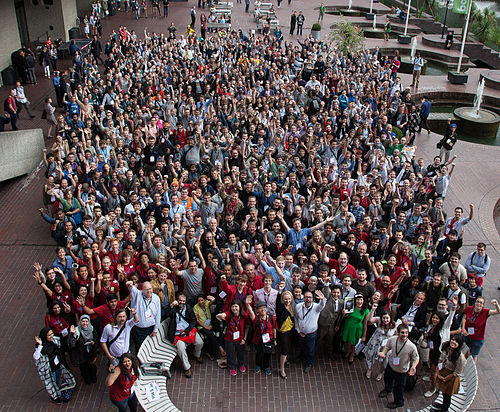
Wikimania Group Photo from Wikimedia Commons
Brandon explained that eventualism is a perspective that focuses on the long term, not immediacy, the idea that something that it increasingly likely to happen, it will happen eventually. He told the tale of his friendship with Howard Gobioff, one of the architects of the Google File System. Howard died of lymphoma at the age of 36. Brandon’s talk emphasised his belief that eventually we will find a cure for cancer, and that Wikipedia will play a part in this. Jack Andraka is the proof in the pudding here. At the age of 13, after his uncle died of pancreatic cancer, Jack began to research pancreatic cancer testing techniques using “a teenager’s two best friends: Google and Wikipedia“. He used open access journals (such as PLOS) and Wikipedia articles to look at 8000 proteins. After 199 rejections from science labs to his 31-page letter asking to allow him to research there he eventually got a positive response and was able to research and discover a strip tests for the level of mesothelin, a soluble cancer biomarker. Quite incredible! Jack argued that his biggest challenge (and science’s) was scientific paywalls and talked of an information hierarchy; information should be a basic human right.
“Making diversity happen”
An engaging address from Diana Strassmann, Chair Wiki Education Foundation offered three theories of knowledge with regard to Wikipedia: Is it a sum of facts, a representation of reality or a narrative? With this in mind she asked ‘How will the Wiki Education Program make Wikipedia more useful to more people?’. One of the program’s focus has been on supporting more diversity of editors and controlling systematic bias. At Wikimania there were a lot of sessions on diversity and balancing up the gender gap. Last year Wikimedia Deutschland cooperated with Beuth University of Applied Science and released a very accessible report entitled Charting Diversity. Many of the issues dealt with in sessions are summed up in this report.
In her talk Diana explained that the typical Wikipedia editor is young, white, educated guy from global north; “their stuff is well represented“. Having diverse participation goes beyond editors, who decides what it is important to present? Who decides what is fair in an article? Often those deciding also come from the same gender, race and socio-economic group. Here Diana gave the example of maps, and inclusions to and omissions from maps. You need to make diversity happen. You need to make people welcome, listen to others outside the community and respect missing voices.
“Imagine growing up knowing your voice counts”
Clare Sutcliffe, founder of Code Club, (voluntary initiative in the United Kingdom aimed at teaching children aged 9 to 11 how to code) a voluntary initiative in the United Kingdom aimed at teaching children aged 9 to 11 how to code, gave an introductory talk to the Codeclub network. After bemoaning that children weren’t getting into code at a young age Clare created a network and brand that could do that aims to have club in 25% of primary schools in the country. The current result is 120 clubs with 100 clubs a month opening up, 40% of children who attend are girls and clubs are run by volunteers so free to schools and free to parents. Codeclub offers online training course for volunteers and hopes to engage with the new computing curriculum that kicks off in September 2014. Resources are openly licensed, they currently use Creative Commons CC-BY-NC. Plans are afoot to do more work with Raspberry Pi, Ardueno and translate resources.
Emma Mulqueeny, founder and CEO of Rewired state and Young Rewired State, talked about the 97ers: children born in 1997 or younger who have grown up with social media, recession and terrorism, “imagine growing up knowing your voice counts”. She gave some insightful illustrations of how this has affected their identity formation (FB is about telling stories, pictures verify their story, the 97ers have learnt to adapt their storytelling quickly by the feedback loops of likes, shares and comments). Emma also suggested how we, as adults and parents, should deal with them (we shouldn’t police them, they know how to keep themselves safe (they have grow up with a sense of social responsibility and know how to influence huge networks quickly). Emma referenced the work of Ivan Illich, a critic of the institutions of contemporary Western culture and their effects on education, his work was mainly released in the 1950s and 60s. Illich talked of “educational webs which heighten the opportunity for each one to transform each moment of his living into one of learning, sharing, and caring“.
“Confusing the means with the goal”
Bill Thomson from the BBC described some interesting analogies between the BBC and Wikipedia in his talking addressing the serious transformation going on in journalism (journalism used to write the first draft of history, citizen journalist now offers up the zero draft) (his notes). Despite the cultural shift he wanted to ensure that the Wikimedia Foundation doesn’t go on to make the mistake the BBC has made, of confusing the means with the goal. Bill explained that too many people inside and outside the BBC believe that the corporation was created to make TV and radio programmes, it was created to share knowledge. As Wikipedia recently stated on Twitter “It’s important to realise that our mission is not to make a website, but to share knowledge, freely available for reuse.” Wikipedia is not a replacement for books– it is something new – not sure what it is yet. Wikipedia is a product of collective intelligence…that’s very different from battle for byline in journalism.
Reciprocity
Luis Villa from the Wikimedia Foundation Counsel talked about Trust and Sharing. He used the photo above to illustrate that people have shared for years, but people can be sceptical. So for example if you ask an economists they will be soley concerned with monetary side of sharing, or if you ask a lawyer they will say that contracts are the only way to create trust. But the truth is that we like to share because of reciprocity – responding to a positive action with another positive action, rewarding kind actions. And 60-70% share more than economically rational – we often assume good faith.
In the digital world Luis argues that Free sharing is low cost and non-free sharing doesn’t work because licensing schemes are costly to implement. This is illustrated through examples such as cultural organisations who have sharing missions, like the Brooklyn museum who have now left flickr but feel that image sharing on Wikimedia commons is working well. The British Museum has a significant history of sharing – from the beginning it granted free admission to all ‘studious and curious persons’. Luis pointed out that we have lots to learn from GLAM community where is a broader movement of sharing. Wikipedia has built a solid foundation through its use of free licensing. However there is still working to be done: we need to make it easier to attribute
The talk from Ryan Merkley, CEO Creative Commons (If CC didn’t exist, Wikipedia would have to invent it!), began in a slightly more pessimistic way with his pointing out that capitalists will be making money from knowledge till the wells run dry. However he quantified this by saying that we all know that dying business models are going to end, we just disagree about when. Ryan offered a vision for Creative Commons that includes the movement making the case, growing the commons and driving discovery, use, and re-use.
Conclusions and an Open Coalition
I attended a very fruitful workshop on building the Open Coalition led by Bekka Kahn. The open coalition is an effort to bring together organisations working in the open space so they can collaborate and share best practice: “Helping open organisations and those hoping to be more open“. Current work includes collaboration with DEMOS, beginning to build a map/visual representation of the open space and working on a community building guide (a handbook for people who want to build communities). The rest of the session gave us the opportunity to offer ideas about what activities the group could carry out. I personally would like to see more joint-proposal writing and a better understanding of how business models work.
The Open Coalition is such a great idea. Open organisations have aligned goals but often the focus is on our differences and competitive elements. Wikimania did a great job of reminding me that sometimes we need to go back to basics and think about the point of our activities. Sharing knowledge is what open education is all about and the Wikimedia “culture of kindness” plays an important role.
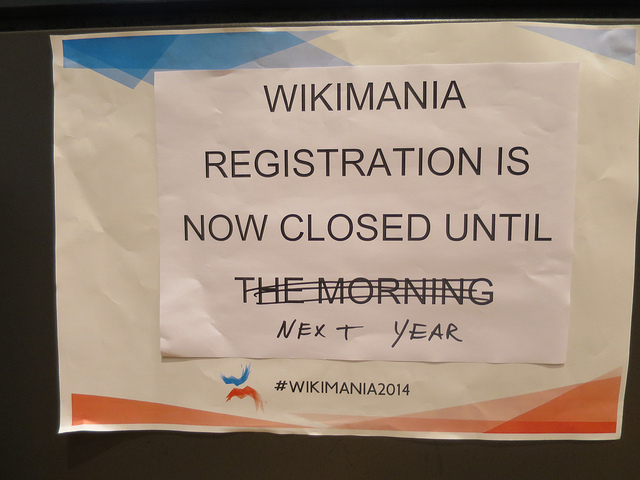
Photo taken by Fabrice Florin, Flickr, CC BY-SA
 Open Education Working Group
Open Education Working Group 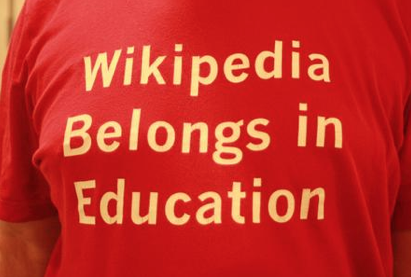
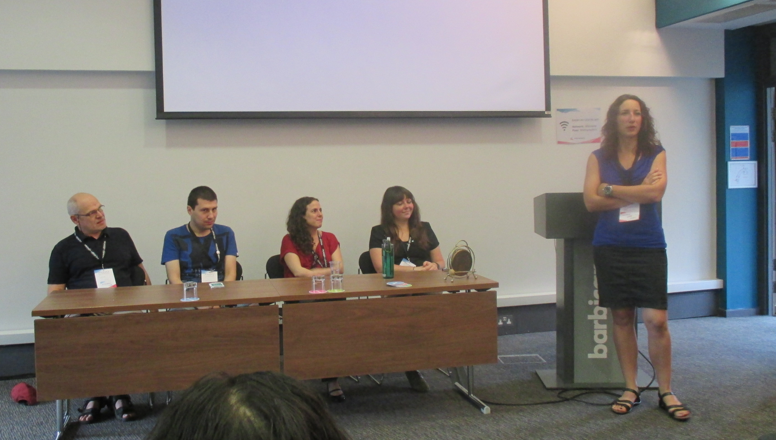
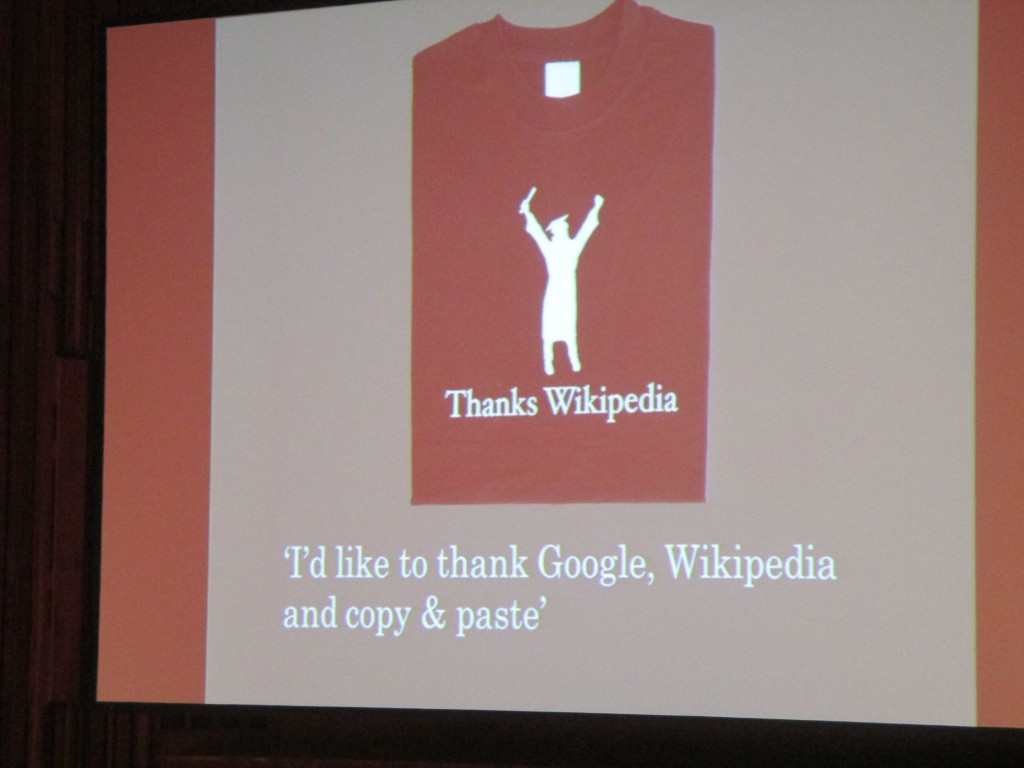
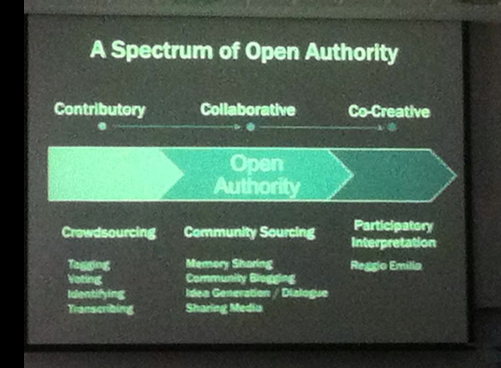
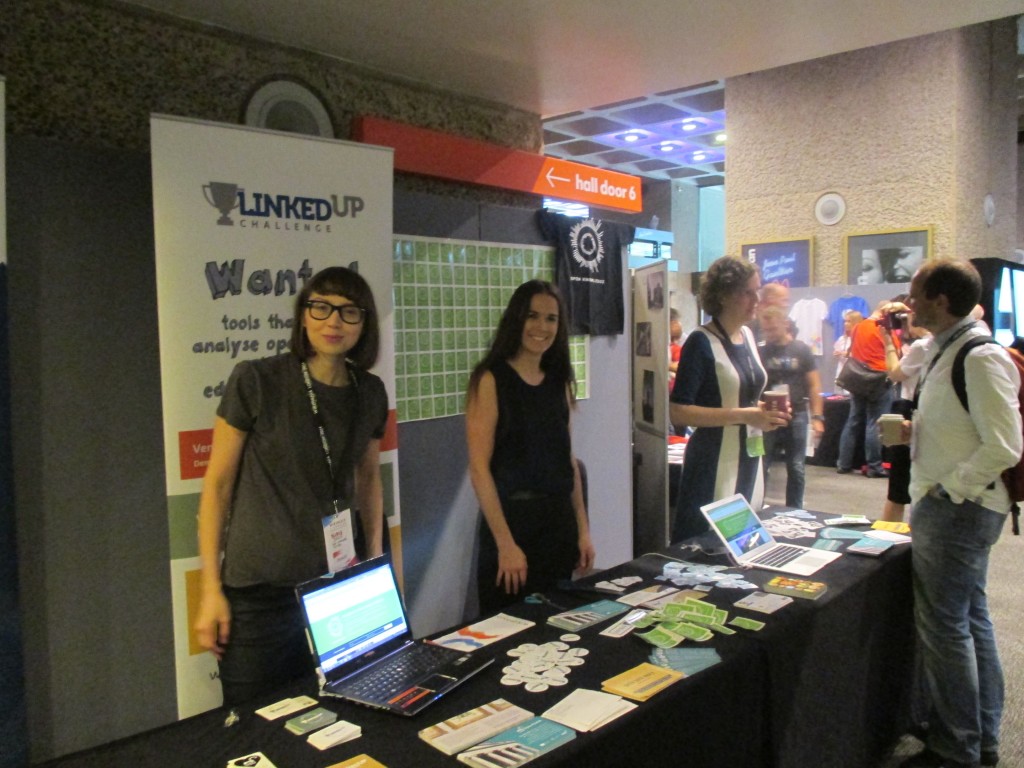
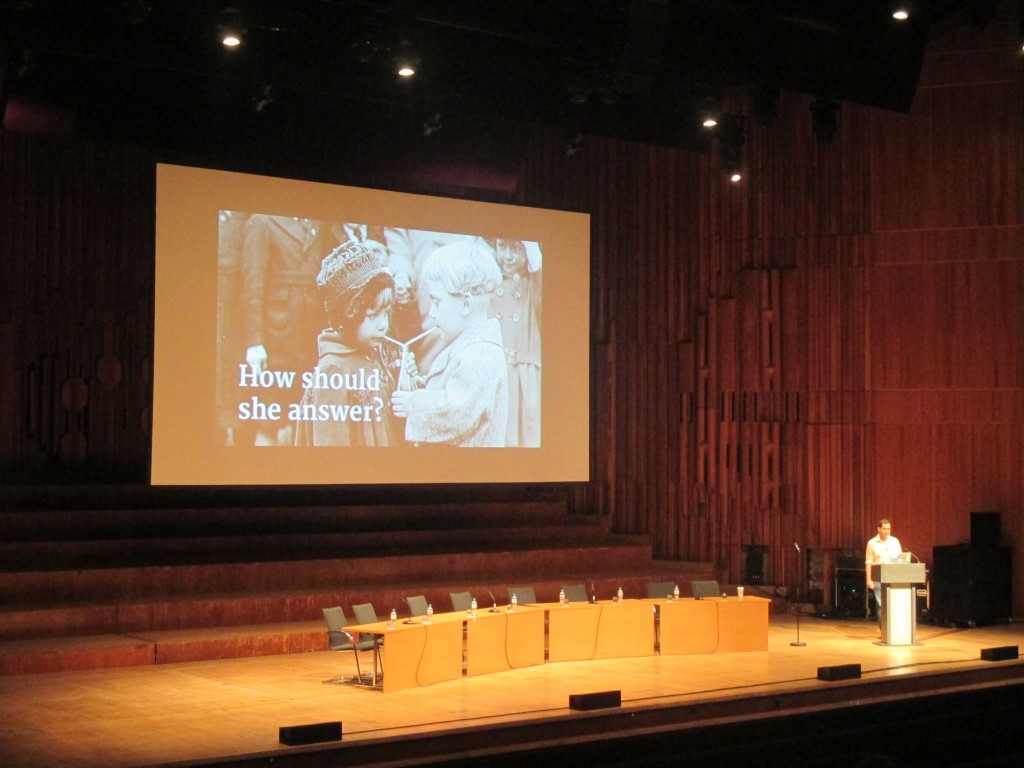




Thank you very much for this post Marieke, I really enjoyed it. As someone who was involved in Wikimania, reading the reflections of those who came is incredibly useful.
What struck me is that there’s really a sense that the use of Wikipedia within educational settings has shifted from something that’s frowned upon to something that is now much more mainstream. Wikipedia definitely belongs in education!
I’m also really pleased with your comments about the Open Coalition. By working more closely together, our organisations interested in, say, open education, can achieve much more impact with our time, resources and efforts. There’s amplification there, and economies of scale. Bekka Kahn is doing a great job in getting the message out there and bringing together those with similar aims.